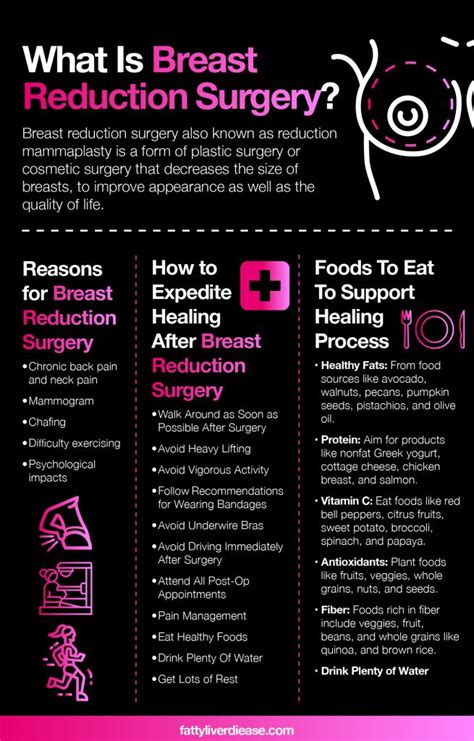The Science of Sleep and Breast Reduction Recovery: Restoring Your Body and Mind
Breast reduction surgery is a significant procedure, impacting both physical and mental well-being. While the aesthetic benefits are often the primary focus, the recovery process is crucial for optimal healing and long-term health. Understanding the science behind sleep and its vital role in recovery can significantly improve your post-operative experience. This article delves into the intricate relationship between sleep, healing, and the specific challenges of breast reduction recovery.
What Happens During Breast Reduction Recovery?
Breast reduction surgery involves the removal of excess breast tissue, fat, and skin, often repositioning the nipple and areola. This extensive procedure leads to several post-operative effects:
- Pain and Discomfort: Expect varying levels of pain, swelling, bruising, and tenderness. Pain management is essential for comfortable recovery.
- Swelling and Bruising: These are common and often peak within the first few days, gradually subsiding over weeks.
- Numbness: Temporary numbness around the breasts and nipples is normal, gradually improving as nerves regenerate.
- Scarring: Incisions will result in scarring, which will fade over time but will remain visible.
- Changes in Sensation: Altered nipple sensation is common and can be temporary or permanent.
This intense physiological stress emphasizes the importance of adequate rest and recovery.
The Crucial Role of Sleep in Healing
Sleep is not merely a period of inactivity; it's a complex physiological process vital for tissue repair, immune function, and overall well-being. During sleep:
- Growth Hormone Release: The pituitary gland releases growth hormone, crucial for tissue regeneration and wound healing. Sleep deprivation significantly reduces growth hormone production, hindering recovery.
- Immune System Regulation: Sleep allows the immune system to function optimally, fighting off infections and inflammation that can complicate healing.
- Pain Management: Adequate sleep reduces pain perception and improves pain tolerance, facilitating a more comfortable recovery.
- Stress Reduction: Surgical procedures are stressful events, affecting both physical and mental health. Sleep helps regulate the stress response and promotes emotional well-being.
How Sleep Impacts Breast Reduction Recovery Specifically
Optimal sleep during breast reduction recovery is paramount for several reasons:
- Faster Wound Healing: Adequate sleep boosts growth hormone, accelerating the healing of surgical incisions and reducing the risk of complications.
- Reduced Pain and Swelling: Proper rest minimizes pain perception and inflammation, reducing discomfort and promoting faster healing.
- Improved Immune Function: A well-rested immune system helps protect against infections, a critical concern post-surgery.
- Better Pain Management: Sleep deprivation can amplify pain, increasing the need for stronger pain medication. Sufficient sleep reduces pain sensitivity and potentially lessens reliance on analgesics.
- Enhanced Mental Well-being: Recovery from any surgery can be emotionally challenging. Adequate sleep promotes mental clarity, reduces stress and anxiety, and improves overall mood.
Addressing Sleep Challenges During Recovery
Despite the importance of sleep, achieving sufficient rest after breast reduction can be challenging. Several factors contribute to this:
- Pain and Discomfort: Pain can disrupt sleep patterns, making it difficult to fall asleep and stay asleep.
- Swelling and Bruising: Discomfort from swelling and bruising can make lying in certain positions challenging.
- Medications: Pain medication may cause drowsiness or other side effects that interfere with sleep.
- Emotional Stress: Anxiety about the surgery and recovery can disrupt sleep.
Strategies for Optimizing Sleep Post-Surgery
To maximize the healing benefits of sleep, consider these strategies:
- Pain Management: Work closely with your doctor to manage pain effectively. This might involve a combination of over-the-counter and prescription medications.
- Comfortable Sleeping Position: Experiment with different positions to find one that minimizes discomfort. Sleeping on your back with your head slightly elevated might be beneficial. Consider using extra pillows for support.
- Relaxation Techniques: Practice relaxation techniques like deep breathing, meditation, or gentle yoga to reduce stress and improve sleep quality.
- Create a Sleep-Conducive Environment: Ensure your bedroom is dark, quiet, and cool.
- Regular Sleep Schedule: Stick to a consistent sleep-wake schedule, even on weekends, to regulate your body's natural sleep-wake cycle.
- Avoid Caffeine and Alcohol: These substances can disrupt sleep patterns.
- Consult Your Doctor: If you are experiencing significant sleep problems, discuss them with your doctor or surgeon.
Frequently Asked Questions
How much sleep do I need after breast reduction surgery?
Aim for 7-9 hours of quality sleep per night. This allows your body to focus on healing and rebuilding.
What if I can't sleep?
If pain or discomfort prevents sleep, discuss pain management strategies with your doctor. Relaxation techniques can also help.
Can lack of sleep affect my scar healing?
Yes, inadequate sleep can hinder the healing process, potentially leading to increased scar tissue or impaired wound healing.
How long will I need extra sleep after the surgery?
The need for extra rest varies depending on individual responses, but many women report needing several weeks of extra rest.
Should I take sleeping pills?
Only take sleeping medication if prescribed by a doctor. Long-term use of sleeping pills is generally not recommended.
By prioritizing sleep and actively addressing any sleep-related challenges, you can significantly improve your breast reduction recovery, experience less pain, heal faster, and enhance your overall well-being. Remember to consult with your surgeon or doctor for any concerns or questions regarding your specific situation. They can provide personalized advice to optimize your recovery and ensure a positive outcome.

